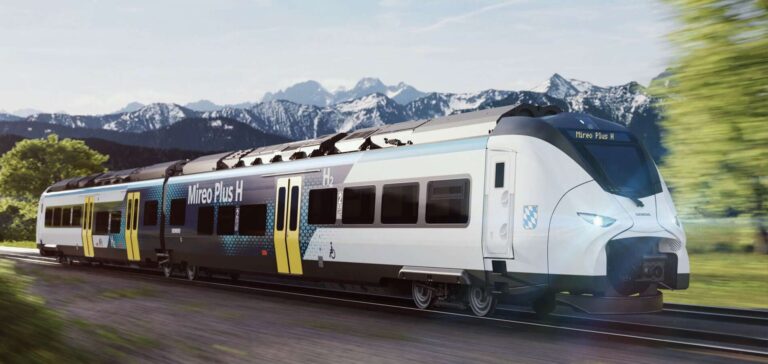Ballard Power Systems receives an order for two 200 kW fuel cell modules.
They will be used to power Siemens‘ two-car Mireo H Plus train currently under construction.
Ballard conducts 1st tests on Mireo H Plus train
Ballard announced in 2017 that it was developing a 200 kW hydrogen fuel cell module under a development agreement with Siemens.
Today the two companies are conducting a trial operation in Bavaria for the Mireo H Plus passenger train.
The fuel cells that Ballard is building will be used to provide primary propulsion power for this lightweight train.
Consume 25% less fuel than a conventional train
Mireo H Plus is a modular commuter train designed for non-electrified railway lines at speeds of up to 160km/h.
The battery modules are mounted on the roof of the train and, in addition to the batteries, provide a range of 800 km.
With a similar passenger-carrying capacity, the train will consume 25% less energy than current trains.
Regional transport lacks electrified lines
Unlike mainline railways, regional transport has no electrified lines, and is therefore highly polluting.
This trial will make a significant contribution to reducing emissions from regional transport in Bavaria and Europe as a whole.
The fuel cells will be used for passenger and freight trains, which must aim for zero emissions.
The schedule for the Mireo H Plus is becoming clearer: delivery of the modules in 2022, presentation of the train in 2023 and entry into service in 2024.
A first project that will inspire others to support climate-friendly transport.





















